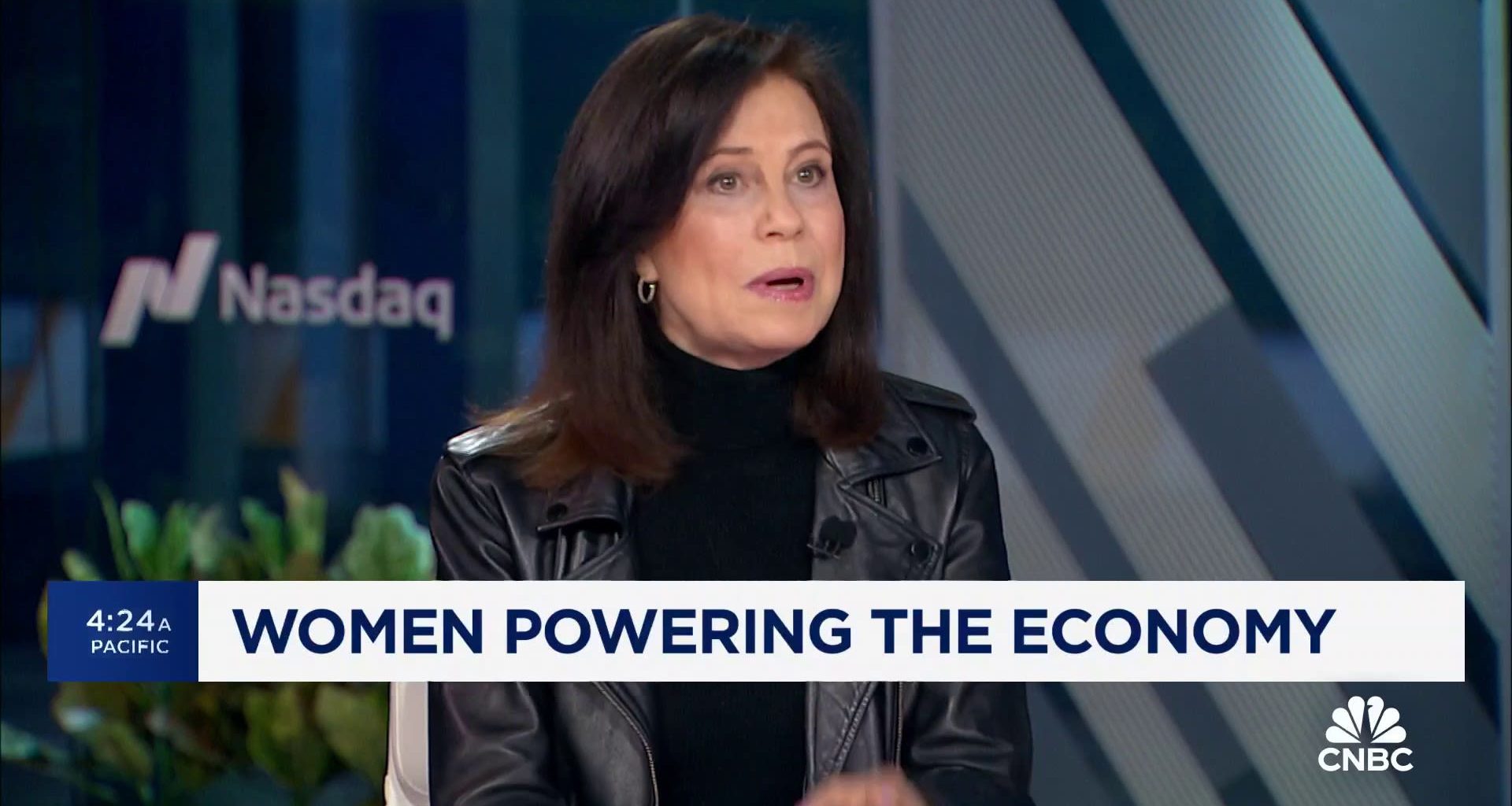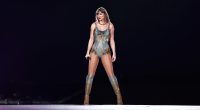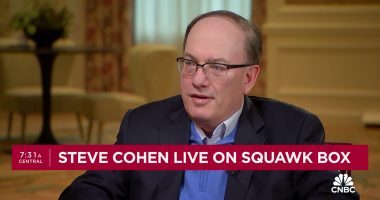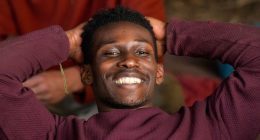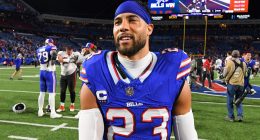Sarah Wolfe
As Tiffany Mane read a personal finance book during her train ride to work, a woman sitting near her acknowledged that she, too, knew of the author. Shortly after, several bystanders began inquiring into its contents.
Mane was reading “Financial Feminist” by Tori Dunlap. The late 2022 release is one piece of Her First $100K, Dunlap’s money-focused education platform targeted at women and other marginalized groups.
That commuting experience highlights the growing community built around Dunlap’s wisdom. And there’s a cyclical effect at play: Women tap those resources to improve their financial lives, and then share the information with others.
“It really has changed my life,” said Mane, a 35-year-old human rights investigator in the Washington, D.C., area. “I realized there are so many women who don’t know this stuff and who don’t have the resources.”
Finance has historically been viewed as a man’s responsibility, creating a disparity within personal economics. New York Life found the average woman saved less than half a man did in 2022, and a 2021 survey from NerdWallet showed women were less likely to be invested in the stock market than their male counterparts.
But Dunlap and her growing fan base are looking to change that.
Dunlap rose to prominence by sharing her journey to save $100,000 by 25 years old. She was inspired to document this goal after finding that many existing resources didn’t adequately take into account the unique experiences of marginalized groups.
In Dunlap’s words, a lot of what was out there felt “bro-y” and out of touch with a young woman’s experience. She said society has largely characterized spending by women as “frivolous,” creating a critical culture for those seeking relatable financial advice.
“People want to feel seen and they want to feel heard,” Dunlap said. “This kind of identity-focused personal finance is one hundred percent necessary, and is the future of personal finance.”
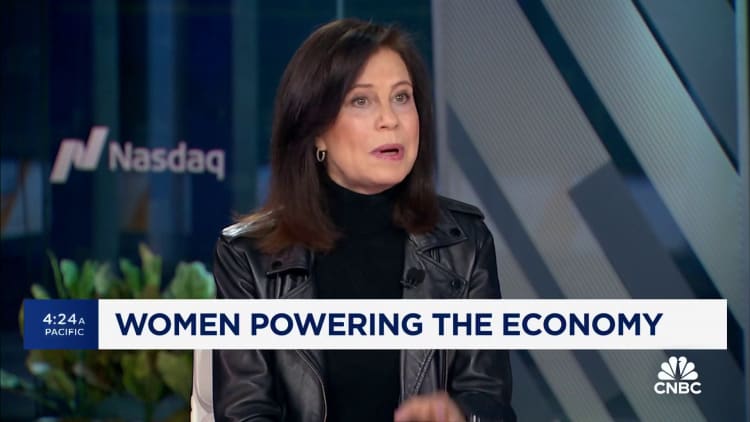
‘Finance is personal’
What began as a side hustle on top of a marketing job has grown to a multiplatform product since Dunlap took the leap to run Her First $100K full time in 2019. Her “Financial Feminist” book sold more than 150,000 copies in its first year in print. Dunlap’s podcast of the same name, which typically has one full and one mini-episode out per week, touches on topics like homeownership and recession planning.
Both the Instagram and TikTok accounts for Her First $100K have amassed at least 2 million followers. A Facebook group named after the book has swelled to more than 100,000 members, where Mane and others converse about issues that impact their money and careers.
In that group, members share financial wins and trade advice on topics like which banks or credit cards to use. Some ask anonymous questions as they venture into sensitive subjects such as debt or the economic reality of divorce. Members have also organized virtual book clubs with others in the group to broaden their knowledge.
Dunlap said she isn’t surprised that the space has become meaningful to members in a society where women are unfairly criticized for their financial choices. She’s also been proud to see a culture free of judgment or shame as participants offer one another validation and feedback.
Tori Dunlap teaching a money workshop.
Courtesy Karya Schanilec
Fans said they appreciate Dunlap’s twofold approach to financial education. She offers actionable steps to improve their economic lives, they say, while also being aware of systematic barriers that make it harder for women and other marginalized groups to build wealth.
Specialized advice can benefit women, as research shows they have less confidence than men in money-related topics, according to Annamaria Lusardi, senior fellow at the Stanford Institute for Economic Policy Research.
These niche resources stand to better resonate with marginalized groups because they can touch on topics or examples that are disproportionately relevant to the specific population, said Lusardi, who is also founder of the Global Financial Literacy Excellence Center. For women, she said one area of emphasis could be on the economics of having or raising children.
“Finance is personal,” Lusardi said. “As a woman, I feel like I have different needs, have different circumstances. And so I want things more targeted to me.”
A ‘sisterhood’
For those who have engaged with Dunlap’s work and the virtual community, they’ve seen how the advice has changed their financial lives — and now feel inspired to pay it forward. In the words of Mane, the Facebook group feels like being part of a “sisterhood.”
Through Dunlap’s advice and subsequent research, Mane has implemented a plan for budgeting and opened a high-yield savings account. She also opened a Roth individual retirement account, which grows free of taxes, and she is beginning Dunlap’s educational program focused on investing called Stock Market School.
As a result, Mane, a child of immigrants who grew up below the poverty line, said she’s never felt so economically stable. Her upcoming wedding will be paid for in cash, a financial milestone she never thought would be possible.
Mane has gifted “Financial Feminist” to several women in her life. The human rights investigator has a copy in her office for curious colleagues, often explaining what it is and has meant to her. Beyond the Facebook group, she’s started passing down tidbits of wisdom to her nieces.
Thousands of miles away, Tierney Barker is seeing parallel effects. The 32-year-old Canadian first found Her First $100K’s resources on budget tracking and debt consolidation.
One of the travel agent’s first big changes was implementing a savings “bucket” strategy — in which money is earmarked for living expenses, goals and fun. Barker has also been finding time to review her finances on a regular basis. She, like Mane, has opened a high-yield savings account.
After seeing the impact on her own life, Barker recommended the book to others and requested its addition to her local library in British Columbia. Barker also found herself better equipped to discuss money with other women, something that once felt like a taboo subject that was the private reserve of men.
“It’s been easier to talk about it and to be open about it,” Barker said, adding that having the resources is “empowering.”
While Dunlap has been proud to see individuals benefiting from her advice and sharing it with others, she thinks that the work isn’t done.
She said the systematic barriers that disproportionately hurt women and minorities in the business world remain. After the Supreme Court’s decision to overturn Roe v. Wade, Dunlap said it’s more important than ever to push for social equity — including in the areas of economics and finance.
“I don’t believe we have any sort of equality for any marginalized group until we have financial equality,” she said. “A financial education is our best form of protest as women.”
Read More: World News | Entertainment News | Celeb News
CNBC

